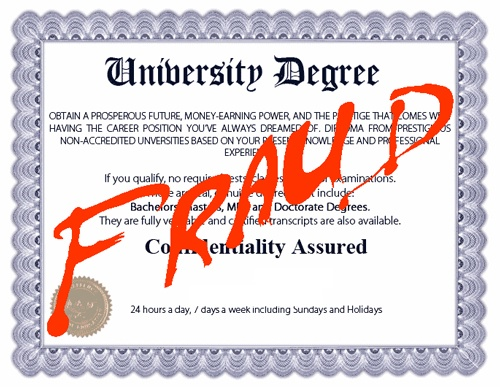For the past couple of weeks, Taiwanese were having a field day with the ruling party Democratic Progressive Party over a controversy surrounding the academic qualifications of their mayoral candidate for the City of Taoyuan.
Apparently, the candidate, Lin Chih-chien (林智堅), had never been to a university, yet somehow, he was able to obtain two master’s degree! One of it is said to be awarded by none other than the National Taiwan University (NTU).
You cannot hide pseudo achievements from nitizens now. Some took pain to check and concluded that much in Lin’s two theses was plagiarised. NTU was embarrassed by the incident and had had simply to the do the right thing: Stripping Lin of his master’s. I do not know the fate of his other degree, which is said to be awarded by Chung Hua University.Lin is said to be a fond protégé of Tsai Ing-wen (蔡英文). And I am sure many of you are also aware that the authenticity of Tsai’s own PhD – purportedly from the London School of Economics – is also suspect. Despite the fact that NTU has already acted, i.e., confirming the questionability of Lin’s work, Tsai still demands that her party members maintain their support for Lin. She also blames the opposition Kuomintang for playing politics about the issue.
This begs two moral questions: (1) Is Lin fit to run for the public office? (2) Is it proper for proper for Tsai to continue to endorse Lin?
Answers to both questions depend on one's value judgements. Some think questionable academic credentials are not an issue, arguing that degrees are not required for such a political position. This is technically true. But if one uses it to strengthen one’s chances to secure an office, then it is a misrepresentation. This appears to be so in Lin’s case. It is said that Lin has often bragged about his two master’s degrees.
There is much plagiarism in life – from junior schools to colleges and universities, and to workplaces. Can such form of “cheating” be tolerated? Originality is strictly demanded in academic pursuits. One can always quote, but the source must be credited. Intentional acts to deceive like Lin’s are certainly no-no.
Lin is a rising star in DPP. He may one day be a candidate for the highest office in the land. His personal integrity, or the lack of it, has been exposed. Like all Confucian societies, Taiwan observes meritocracy. And academic achievements serve as the basis upon which scholars are measured when they enter the bureaucracy, the academic world, or the workforce. That’s the reason why their accreditation should not be compromised – if the institution offering them is worth its salt.
To his growing up children, can Lin be a proud father? And do you want to see a leader who is using fakes to gain respect?
I believe that Tsai’s own questionable academic credentials has contributed much to her steadfastness in defending the indefensible. In her own case, she should have owned up and moved on – if indeed, she has yet to be properly awarded a PhD by LSE. (Facts suggest that she was there to do hers, but she did not graduate.) The “state secret” law may protect her from criminal proceedings when she is alive, but her false PhD claim will certainly make a sorry epitaph to her presidency. t her personal history. By endorsing Lin bullheadedly, she only reinforces her detractors’ assertion that she is no decent leader in the first place.
It appears that such a practice is now common in Taiwan. Some are using political muscles to get gold-plated by universities and many supervisors are happy to oblige. (In the West, masters degrees in top universities are also not difficult to obtain - if you are sponsored.) it is said that some have even used hired guns to do their thesis.
I wrote somewhere many years ago that there were many paper chasers in our midst. I even recruited one such character once.
We were looking for a technical assistant and one of the candidates convinced us that he had trained in a Madras technical school. The diploma looked genuine enough. He was duly hired. It was not until years later that I came to know that his was a bogus degree. On another occasion, a candidate showed me his master’s from an American university. By then I had already known enough that there were many such fakes around, and his was indeed from one of the degree mills.
When I was in Genting I was impressed by a chap who claimed he had an MBA from Strathclyde and a PhD in Chemical Engineering from Manchester (maybe it was the other way around, I cannot remember), yet he was happy to be just a personal assistant to one of the directors. He moved on to become an executive director in a listed company later. But our path crossed again in another place. We had a corrosion problem in one of the manufacturing processes and decided to gather everyone to do a brainstorm. His absolute silence aroused my suspicion. How could a PhD in Chemical Engineering not knowing anything about corrosion? True enough, he was a charlatan and one who was able to fool the world.
I suppose few would dare to question you if you are bold enough to claim that you have a PhD. Of course, you need also to have a con man’s persona to look convincing.
But again, many of our universities are also becoming like degree mills. One is said to award something like 600 PhDs a year. Every Tom Dick and Harry also seem to qualify with first-class honours.
We used to joke about a certain Pacific Western University, or a certain Century University etc if you want a PhD. These degree mills certainly know there is a big market out there. Many like to be gold-plated!

No comments:
Post a Comment